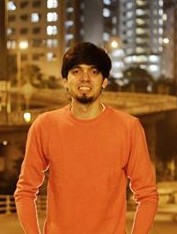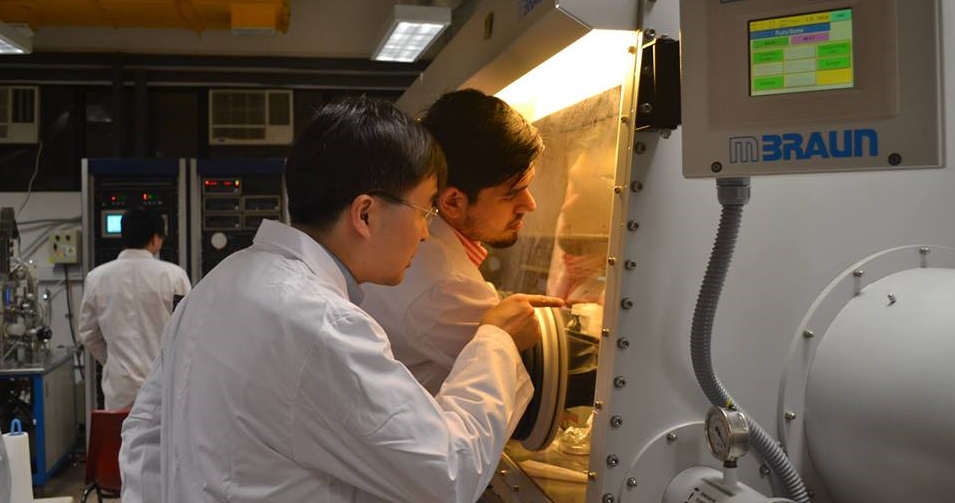by Disha Jain and Baibhav Bahadur | Photo Credits: Turab Raza | 30 April 2014
Renewable Energy is the new fad of the world. Countries like Germany and Denmark are slowly moving towards 100% renewable supply. China projects that by 2020 15% of its power needs will be renewable generated.
CLP in research with HKUST have identified suitable sites for creating wind farms. They project supplying up to 200 MW of energy, which is still a mere 1% of the total HK need. While Solar Energy is abundant in Hong Kong, the sustainability of harvesting such energy is bleak in one of the most densely populated regions.
Regnant Practice
Conventional Solar Technology utilizes semiconductors (especially silicon) to capture (light) photons’ energy which then charges the battery. But Silicon can only capture a certain spectrum of electromagnetic waves (remember, visible light is just a small fraction of the whole spectrum).
Scientists are developing alternative technologies and utilizing alternate materials like plastics to increase the efficiency of the solar cell.
The Future: HKU’s Story
Our team discussed upcoming Solar Technology innovations with Turab Raza, a final year Electrical Engineering student. In the Engineering faculty all students work on a final year project (FYP), which runs through the whole year. Turab is doing an FYP on Organic Solar Cells under the guidance of Dr. Wallace Choy, associate Professor in the EEE department.
Final year projects are a popular feature of the curriculum throughout the world. Technology and Research companies throughout the world are interested in FYPs and are even ready to purchase them from the team while offering jobs to the candidates.
Using a success story from Hong Kong, former City University student Mr. Francis Kwong decided to work on ‘Semantic Web’ – a relatively new concept in 2002. He entered his research to the IEEHK YMS competition and won 2 scholarships totally worth HK$250,000 per year, renewable till he finishes his PhD.
How to create the Magic?
Turab’s work involves testing different materials as substitute for silicon in a solar cell. While the work may seem straightforward it is similar to Edison’s quest to find the optimum material for a light bulb. In a description of his regular duty, he performs one simple process once or twice every week. This process takes a whopping 12 hours each time!
1. Clean the substrate (special glass piece) using acetone and ethanol until it is squeaky clean
(which can take up to an hour!)
2. Evaporate the organic material onto the substrate and place it in a vacuum
(Gradually a cell with positive and negative poles will form)
3. Measure the power across this cell
4. Place the cell under a Sun Simulator and measure the efficiency
Advisor – Your new Best Friend!
Turab has been working under his advisor, Dr. Choy since his second year as a Research Assistant (RA).
“The role of an Advisor is crucial to your FYP as they determine your pace of work while offering guidance and support.” Said Turab, “I meet my advisor 2 to 3 times a week.”
Advice to Juniors
For juniors, he advises them to select a FYP topic by the end of the penultimate year. To do this, the students should talk to various professors about their work and decide on what they want to do in the year ahead.
The work on organic solar cells still continues; Turab could not certainly say if his project would see the light of the day or fade into oblivion – such is the unpredictability of research. It is the exhaustive scenario in parallel with what Edison said on his invention, “I now know 999 ways a light bulb wouldn’t light up”.
Your Chance to Gape!
HKU’s Final Year Projects will be on public display in the beginning of May – a great chance to absorb new ideas implemented by HKU’s final year students. Talking to the students themselves and learning their stories is especially useful for engineering and research students.
Disha Jain
disha_j25@hotmail.com
Latest posts by Disha Jain (see all)
- Solar Power — The Organic Dimension - April 30, 2014
Vaibhav Bahadur
bahadur.vaibhav@gmail.com
Latest posts by Vaibhav Bahadur (see all)
- A Tour of the HKU M2 Robotics Team Lab - March 30, 2014
- When UBS Holds a Competition - February 5, 2014



